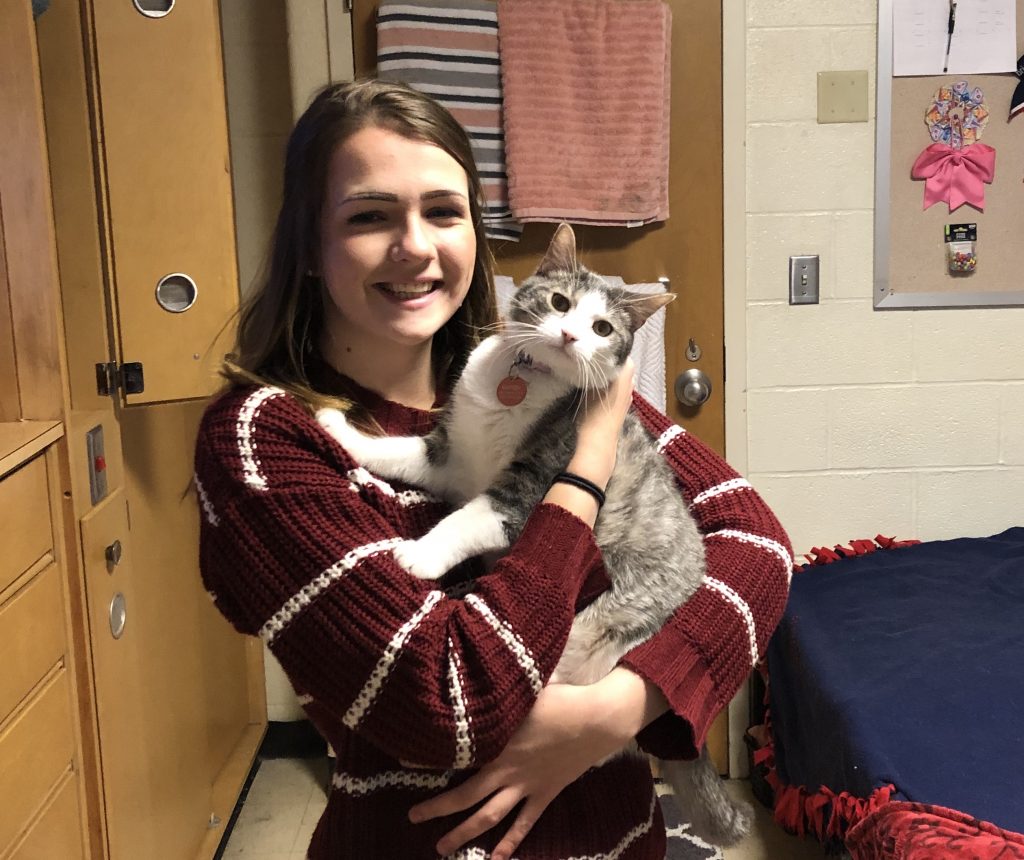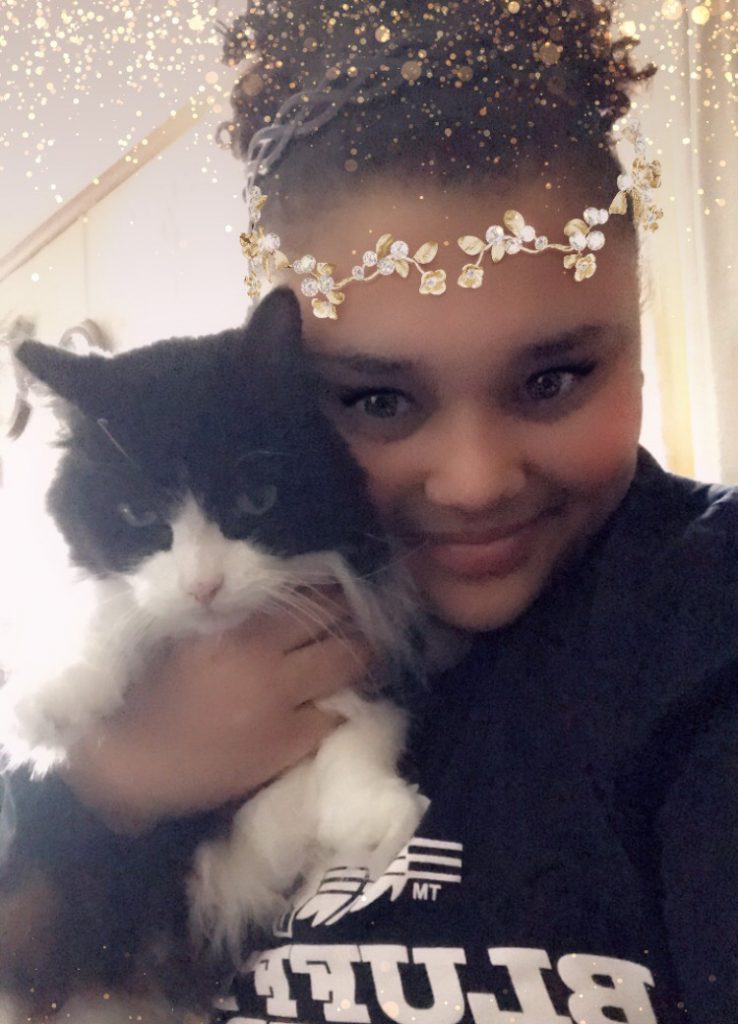When people think of life in the residence halls, they typically think of humans. However, for some Bluffton students, their residence life experience now include animals as well. Emotional support animals began arriving on Bluffton’s campus last spring and now four currently live in residence halls across campus.

Sophomore Bridgette Montgomery has a cat named Georgia as an emotional support animal. She said having an emotional support animal has been very beneficial.
“It’s helped with me focusing with my studies and me feeling more comfortable in my dorm room and feeling like I’m more at home,” said Montgomery. “It’s kind of like my roommate since I don’t have one.”
Montgomery adopted Georgia from a shelter in Troy when she was about 5 months old, and has had her for about three months at this point. She said Georgia is adjusting well to living in her dorm.
“I think she’s more used to my dorm room than she is my house,” Montgomery said. “I have two dogs at my house, so she’s not used to the dogs playing with her a lot. She likes my room because it’s more secluded.”
Georgia isn’t the only cat on campus, however. Sophomore Victoria Wilson also has a cat for emotional support. Wilson brought her cat, Annie, to campus after a fall caused her to switch rooms. She said the move was a hard adjustment for her.
“A couple of my professors thought it would be a good idea,” said Wilson. “I thought it was a terrible idea─I thought it would be a horrible idea to bring one of my animals here. They said, ‘Let’s just try it,’ so I tried it, and she’s here, and I love it now.”

Wilson said what she loves most about having Annie is the routine that she brings. After Wilson finishes class, she usually returns to her room, and the two eat dinner at the same time. Wilson said Annie always knows when to wake her up, often just minutes before her alarm is set to go off.
Unlike most emotional support animals, Annie only stays with Wilson about seven to ten weeks out of the semester.
“When I get more homework and more stressed out, that’s when I bring Annie, and Annie stays with me for a couple of weeks,” Wilson said. “I decided to do that because I’ve noticed I don’t need her all the time. You’re supposed to have her for a reason, and if I don’t need her, she can stay home with the other animals and the other people who can take care of her.”
Sophomore Connor Sanders went a different route with his emotional support animal, opting to adopt a ferret. The ferret, named Alfredo, is now about 6 months old. Alfredo can jump about 3 feet into the air and makes a noise like a “rapid fire chicken cluck,” according to Sanders.

Sanders said having an emotional support animal has positively impacted him.
“It’s definitely nice having something in my room, like if I’m stressing over school,” Sanders said. “It’s nice to take my mind of things and have an animal. It’s kind of how you feel when you’re at home with your dogs. It gives you that home feeling in your own dorm.”
Although Sanders said he doesn’t typically flaunt Alfredo, when students do see him, they are generally excited.
“When I walk him on campus, every once in awhile people are surprised to see him, but I’ve never had somebody go ‘Oh, that’s disgusting, keep that away from me,’” Sanders said. “I think a lot of students are just happy to see something that’s not a person.”
All three students described the process to getting an emotional support animal as paperwork-heavy and long but not difficult. The first step is obtaining a doctor’s note indicating a need for an emotional support. Jacqui Slinger, counselor for disability services, then reviews the documentation to see if there any legal questions to answer, and then it is up to her to approve the animal. Tyson Goings, interim director of residence life, also works with residence life staff to make sure the policies and rules are followed in the dorms.
“Having a cat as a roommate is great, it’s fantastic,” Wilson said. “Having a cat as a roommate is probably the best part about the experience.”






